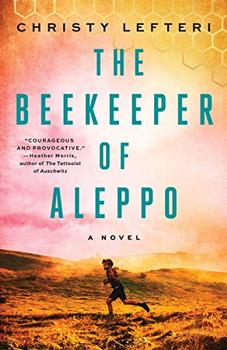Summary | Excerpt | Reading Guide | Reviews | Beyond the book | Read-Alikes | Genres & Themes | Author Bio

A journey of remembrance and forgiveness
by Tracy KidderStrength in What Remains is a wonderfully written, inspiring account of one man’s remarkable American journey and of the ordinary people who helped him – a brilliant testament to the power of will and of second chances.
Tracy Kidder, winner of the Pulitzer Prize and author of the bestsellers The Soul of a New Machine, House, and the enduring classic Mountains Beyond Mountains, has been described by the Baltimore Sun as the “master of the non-fiction narrative.” In this new book, Kidder gives us the superb story of a hero for our time. Strength in What Remains is a wonderfully written, inspiring account of one man’s remarkable American journey and of the ordinary people who helped him – a brilliant testament to the power of will and of second chances.
Deo arrives in America from Burundi in search of a new life. Having survived a civil war and genocide, plagued by horrific dreams, he lands at JFK airport with two hundred dollars, no English, and no contacts. He ekes out a precarious existence delivering groceries, living in Central Park, and learning English by reading dictionaries in bookstores. Then Deo begins to meet the strangers who will change his life, pointing him eventually in the direction of Columbia University, medical school, and a life devoted to healing. Kidder breaks new ground in telling this unforgettable story as he travels with Deo back over a turbulent life in search of meaning and forgiveness.
An extraordinary writer, Tracy Kidder once again shows us what it means to be fully human by telling a story about the heroism inherent in ordinary people, a story about a life based on hope.
This is a smart book for what it does not do. It does not attempt to get inside Deo’s head to guess what he might have been thinking. It does not try to psychoanalyze him once he starts talking about his trauma. It does not overly dramatize this story of extreme suffering and redemption, simply allowing the events to unfold on the page. And it does not attempt to puff out Deo’s story and make it represent more than it does. Kidder takes on the role of a reporter on Deo’s life, but his unusual narrative structure lends the story the grace and depth of a novel...continued
Full Review
(959 words)
This review is available to non-members for a limited time. For full access,
become a member today.
(Reviewed by Amy Reading).
The 1993 Burundian genocide (which preceded the 1994 genocide in Rwanda) traces back to the end of Belgian colonial rule in the 1950s and 1960s and the first Berudian genocide of 1972. Burundian history fits, like interlocking puzzle pieces, with that of its northern neighbor, Rwanda (map of Central Africa).
Like in Rwanda, Hutus make up about 86% of the population in Burundi, with only about 13% Tutsis (the remaining 1% are Twa pygmies). Unlike in Rwanda, where the Hutu majority took power, the small Tutsi elite in Burundi held onto government and military positions after independence. In April 1972, there was a bloody Hutu uprising which prompted an even more grisly retaliation by the Tutsi military. The Tutsis systematically killed ...
This "beyond the book" feature is available to non-members for a limited time. Join today for full access.

If you liked Strength in What Remains, try these:

by Christy Lefteri
Published 2020
This unforgettable novel puts human faces on the Syrian war with the immigrant story of a beekeeper, his wife, and the triumph of spirit when the world becomes unrecognizable.

by Elizabeth Weil, Clemantine Wamariya
Published 2019
A riveting story of dislocation, survival, and the power of stories to break or save us.